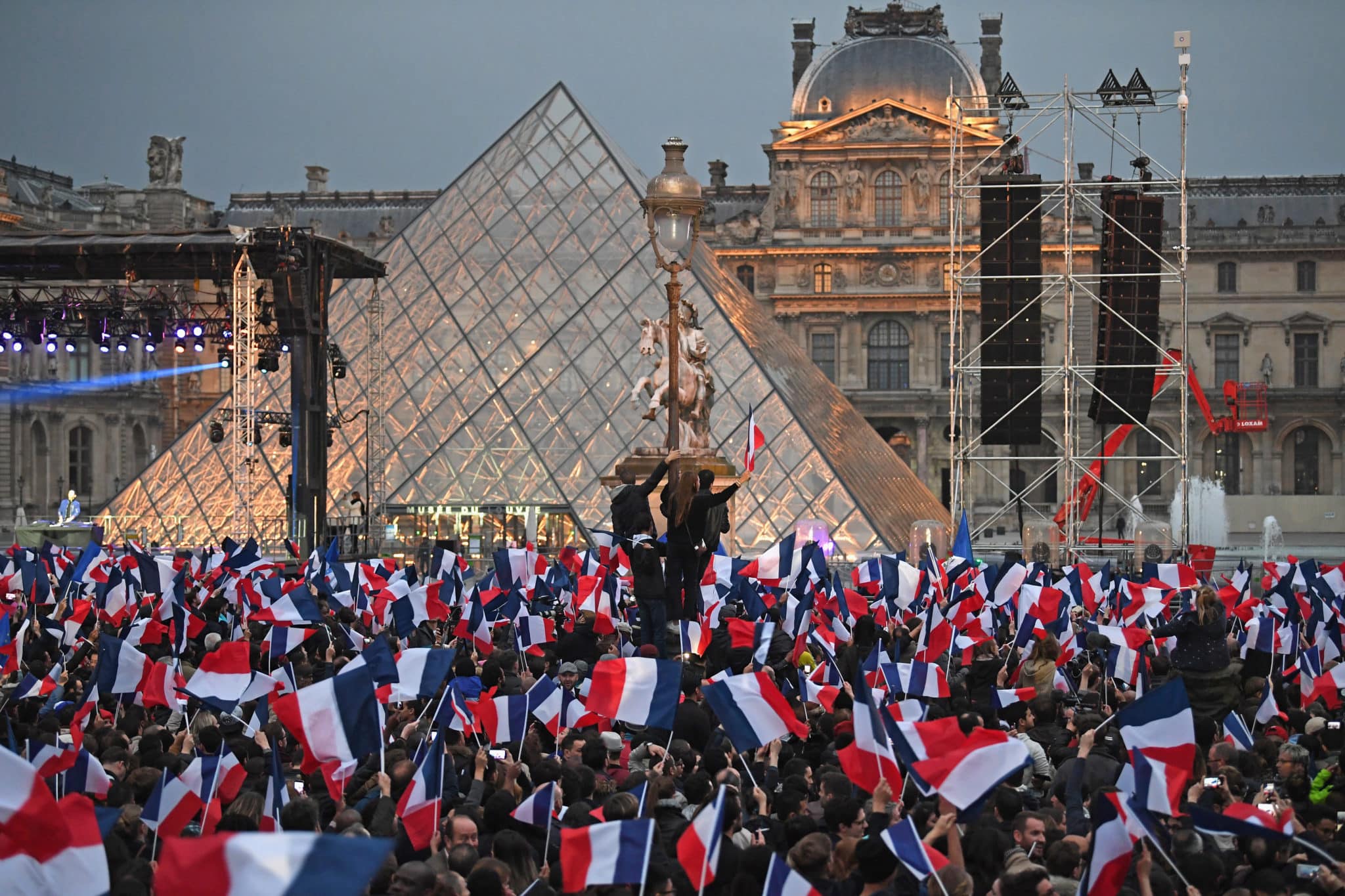 PARIS, FRANCE – MAY 07: Supporters arrive ahead of Emmanuel Macron’s Electoral Evening at The Louvre on May 7, 2017 in Paris, France.ÊVoters are going to choose their next president after a tightly fought and somewhat unpredictable campaign.Ê (Photo by Jeff J Mitchell/Getty Images)
PARIS, FRANCE – MAY 07: Supporters arrive ahead of Emmanuel Macron’s Electoral Evening at The Louvre on May 7, 2017 in Paris, France.ÊVoters are going to choose their next president after a tightly fought and somewhat unpredictable campaign.Ê (Photo by Jeff J Mitchell/Getty Images) More than 80 French leaders issued a statement on May 11 calling for Arab countries to end their boycotts of Israel.
The 85 leaders, which included former prime ministers and members of parliament, said in their statement published in the French newspaper Le Point that the boycott has only served to embolden extremists and incite hostility toward Israel.
“As elected officials of the French Republic, we share a common concern on these subjects, whatever our political orientations,” the statement read. “Since the 2000s, we have been confronted with the instrumentalization of the Israeli-Palestinian conflict on our national territory. This has resulted in an unprecedented explosion of anti-Semitic acts on French soil.”
The statement added, “The same logic of hatred and exclusion that have destabilized North Africa and the Middle East have unfortunately been exported to us. These violent repercussions have weakened France’s social fabric as our nation is home to the largest Jewish and Muslim communities on the European continent.”
The French leaders praised the Arab Council for Regional Integration, which consists of Arab thought leaders from more than 15 Arab countries, for its work in attempting to end the boycott.
“Mohammed Dajani, a Palestinian intellectual fighter for peace, intends to create the first joint doctoral program for peace studies in the region, bringing together Arabs, Israelis and international specialists in conflict resolution,” the statement read. “Algerian journalist Sami B’aziz proposes advanced training for Arab media professionals, all too often imbued with false ‘Jewish conspiracy’ theories that have blocked any constructive discussion on the future of Algeria or its relationship with world Jewry and Israel. Emirati human rights activist Maryam al-Ahmedi proposes to create a women’s league across the Middle East to advance the cause of gender equality.”
The statement noted that most Arab countries criminalize efforts to foster dialogue with Israelis, which is why the French leaders called on the French government to offer international protection for members of the Arab council from prosecution, as well as to anyone else in the Middle East and North Africa engaged in similar efforts.
“Our diplomatic agents posted abroad should, where appropriate, be mobilized to provide such protection based on the principle of diplomatic inviolability, as recognized by international law,” the statement read.
It concluded: “Strengthened by its historical ties and its diplomatic, military, economic and cultural relations with all the countries of the Arab world, France can play a benevolent role by encouraging the constructive approach of the members of the Arab Council and the projects they carry out. By strengthening our ties with those involved in this rapprochement between civil societies in the Arab world and Israel, our country will be able to weigh more and help enable peace to find its way into a region that so badly needs it.”
Secretary of State Mike Pompeo praised the French leaders’ statement in a May 14 tweet. “Congrats to 85 French leaders for endorsing @thearabcouncil’s call to protect Arab citizens who champion peace and dialogue with Israelis,” Pompeo tweeted. “People-to-people relations are essential in curbing extremism and building public support for peace.”
Congrats to 85 French leaders for endorsing @thearabcouncil’s call to protect Arab citizens who champion peace and dialogue with Israelis. People-to-people relations are essential in curbing extremism and building public support for peace. https://t.co/rGamn4K0Ac
— Secretary Pompeo (@SecPompeo) May 14, 2020
On November 26, the Journal published a cover story about the Arab Council’s formation. Its founding statement condemned the boycott for inhibiting “peace between the Israeli and Palestinian peoples. Prevented from engaging either of the two peoples directly, Arabs were unable to cultivate ties that could have enabled us to foster conciliation and compromise on both sides. In sum, the boycott increased the suffering of our societies and weakened our capacities.”























 More news and opinions than at a Shabbat dinner, right in your inbox.
More news and opinions than at a Shabbat dinner, right in your inbox.